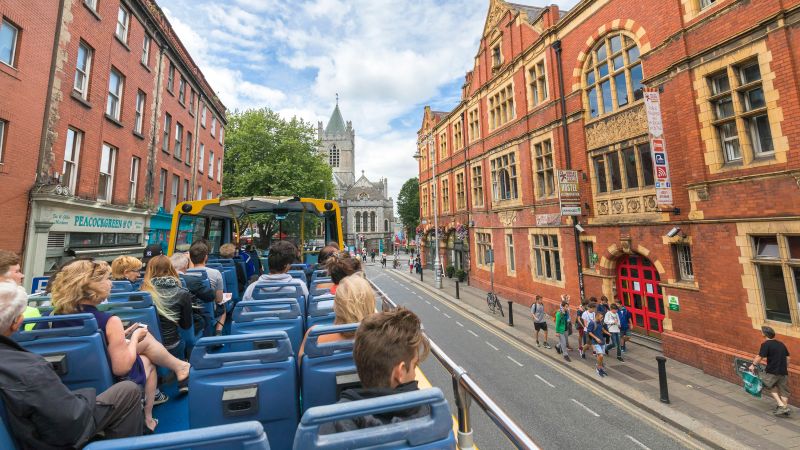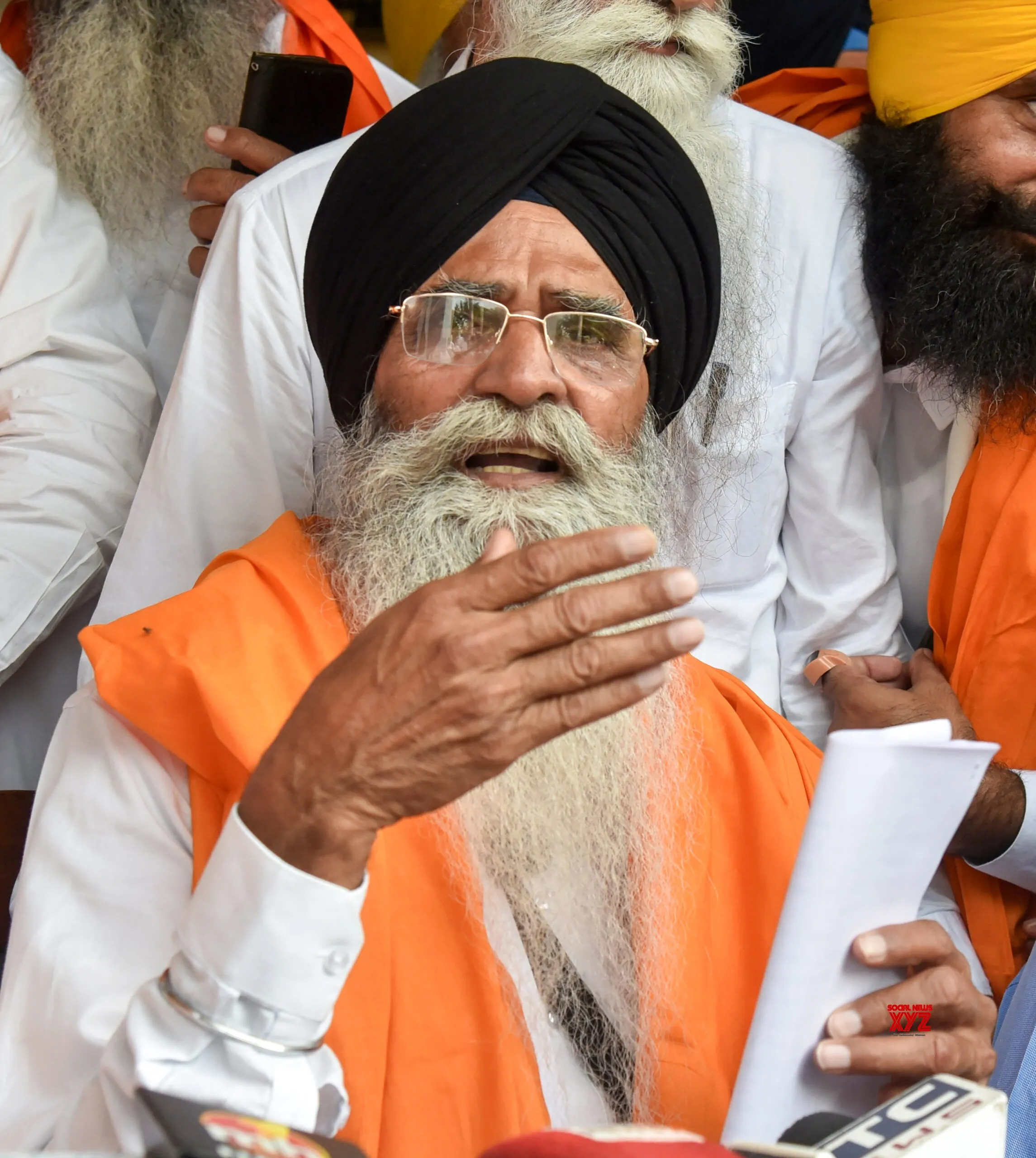Copyright Cable News Network

A shop in Dublin. A taxi on the Caribbean island of St. Martin. A tiny airport in Northern Norway. Those are just a few of the places Florida-based content creator Lauren Gay has been asked this year, in no uncertain terms, about her opinion of President Donald Trump. Often, within moments of sharing the same air space with the questioner, she’s found herself confronted with comments and questions about the state of US politics. “Pretty much as soon as they realize I’m American, hear my accent, it’s almost an immediate discussion. They want to talk about the president,” says the 44-year-old who goes by the handle outdoorsydiva on Instagram. In September, in a rideshare in Ireland, as soon as Gay began talking with an American friend in the car with her, the driver asked them if he could bring up politics. “I said, ‘It depends.’” She’s always hesitant when people want to bring up the topic and never assumes a stranger’s reaction will be in line with her views. (Gay says she is part of the “92 percent,” referring to the share of Black women who voted for Kamala Harris.) “He asked how we could do this again,” referring to Trump’s second term. “He said he couldn’t believe it happened a second time — the Irish don’t mince their words,” she says. A hot topic at home and abroad American travelers are hearing a lot of political hot takes from strangers these days. And among the less conversationally direct, the topic often seems to lurk on the fringes as locals in other countries try to more delicately approach politics and discern how US travelers feel about what’s going on at home. It might come across as a pregnant pause after you tell someone where you’re from, as the interrogator waits to see if you have anything else to add. Or it could be something vague tossed out as a tester when you say you’re American, along the lines of, “Lots going on in your country right now…” as an invitation to wade into political discussion. Tour operator Doni Belau has a strict policy against talking about politics on trips. Belau is the founder of Girls’ Guide to the World, a tour company that arranges roughly 80 international group trips a year primarily for Americans as well as travelers from other English-speaking countries. The no-politics policy is detailed among other “best practices” for the group trips in materials sent to participants prior to departure. “We do trainings with all of our trip leaders to make sure that they shut it down if anything comes up, because it will make somebody in the group feel on the outside, whatever that is for them. And that is the exact opposite of what we’re trying to achieve,” Belau explains. That’s not to say that situations don’t get tricky on the ground, says Belau, as people outside of the group obviously aren’t aware of the no-political-talk policy. On a Girls’ Guide to the World trip to Switzerland and several other European countries earlier this year, one of the group’s participants, Angie Roach, says she and a friend she was traveling with were at a hotel in Zurich talking with a family from New Zealand traveling independently of their group when the conversation turned to politics. “We were having a pleasant conversation at the hotel breakfast. They were very nice to talk to. They were on holiday and very well-traveled,” says Roach, a retired dentist from Tennessee. Then all of a sudden the man “sort of groaned and said, ‘What about Trump?’” recalls Roach, who is a Trump supporter. Roach and her friend’s reaction was to “sort of laugh back and say, ‘What, you don’t like Trump?’” she says. “A lot of times you don’t want to get into that type of conversation because people don’t know how to be civil and talk about politics without being rude sometimes.” The man, who, they learned, was a cattle rancher in New Zealand, went on to explain how the recent tariffs were affecting his family business, Roach says, and they had a “very civil” discussion. “So then you start building sympathy, because you can be a Trump supporter, but still not like, you know, the kind of bad things that come out of politics,” she says. Asked whether questions about US politics abroad would keep her from traveling right now, Roach says “no.” “Politics don’t deter me from traveling — and for sure not our politics,” she says, referring to politics in the United States. For Gay, the political landscape at home has elicited some spontaneous reactions from strangers abroad. During Trump’s first term in office, Gay says she was even offered a sympathetic embrace by a stranger in a drugstore in England. The woman working there heard her American accent and said, “Oh, that president of yours, I’m so sorry. Can I give you a hug?” she recalls. “The most reactions I’ve gotten — and I think it does have to do with me being a Black American — are sympathy and apologies,” she says. Deflecting questions Josh Geller, a luxury travel advisor with EMBARK Beyond travel agency, says bookings to Europe from his American clients are booming. There have been a few instances since the election, Geller says, where clients have wondered ahead of a trip how they’ll be received abroad. “I’ll ask when they come back, ‘What was it like for you?’ And they’ll say, ‘Oh, it was still great. People are really curious how we’re dealing with the current political climate in America,’” he says. Who Geller has been hearing plenty from since the election, however, is general managers of hotels around the world who want to make sure American clients feel safe and welcome, he says. “They’ve been going above and beyond to really make sure that everyone knows that. Every time we talk to our hoteliers and our partners on the other side of the world, they want American business. They know Americans are great for tourism, and tourism boosts the economy. So they always want us there,” he says. American traveler Nicole Hernandez, 30, a physical therapist and health writer from Las Vegas, says she sometimes turns to deflection when asked about President Trump — which happened often during the six weeks she spent in Europe walking along the Camino de Santiago with her English husband earlier this year. “I can count the amount of times on two hands that I met someone and they were like, ‘What’s your name? Where are you from? Did you vote for Trump?’” she says. Hernandez says she found that line of questioning abrasive out of the gate, but she managed to “dance around it.” “I started holding my breath more when I would have to say, ‘Yes, I’m from the US,’ because I don’t know what question is going to come after that, or how they are going to react,” she says. Hernandez says she had a particularly unfriendly encounter with a Frenchman at breakfast in a village along the Camino in Spain one morning, after he asked where she and her husband were from. “He said, ‘Americans. I don’t like Americans.’ He just turns his back to me and just starts talking to my husband,’” she says. She never saw him again but found the experience jarring. Overall, though, she calls her experience walking the Camino, a historic pilgrimage route, a “10 out of 10.” “How you look at the world and your priorities will change because you realize how little you can live with and be really happy. It just changes your perspective,” Hernandez says. ‘Have a response ready’ And being asked to share your perspective is part of the journey for many US travelers these days. Any American traveling abroad right now should prepare to have confrontational conversations, Hernandez says. “Just be ready for people to push the question,” she says. “And if you’re not comfortable talking about it, to have a response ready.” Hernandez says she wishes she had been more prepared with a response to pointed questions and tended to sidestep blunt attempts to open political discussions, although she said she’s open to talking politics. If someone brings up politics and you don’t want to engage, Danielle Kovachevich, founder of the Detroit Academy of Etiquette, says to remember that “the essence of etiquette is about being kind and respectful, specifically, to those different than us.” She says anyone in that situation can “kindly change the subject without making it awkward,” perhaps saying something like, “Politics can get pretty intense these days. How about we talk about something lighter?” Or try a swerve along the lines of, “I’m not sure about that but did you hear …” and insert another topic, says Kovachevich. Gay says she expects the topic to come up and bluntly summarizes the reaction abroad to current US politics: “The world is watching, and they’re judging us for it.”



